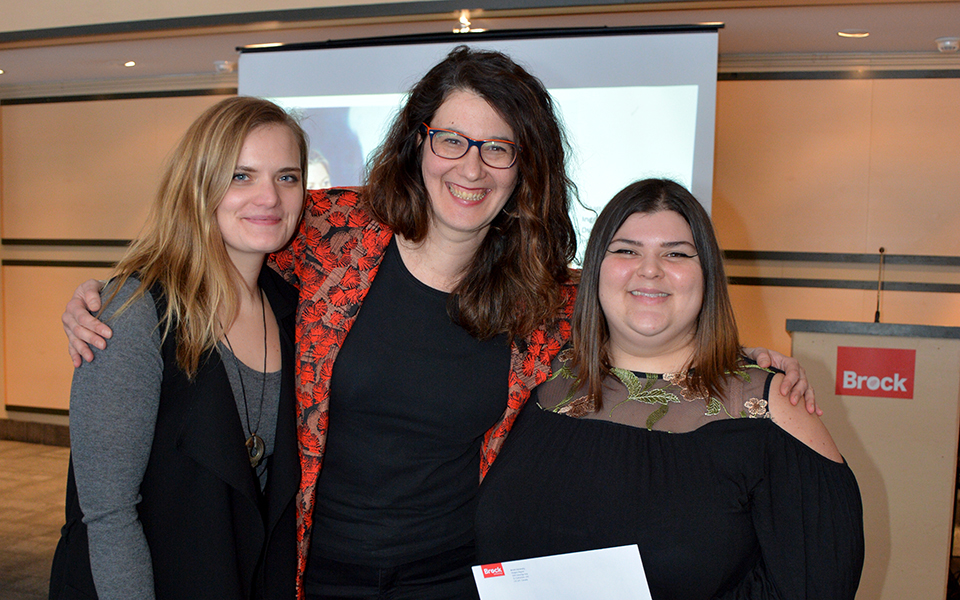
Geography and Tourism Studies student volunteers at the Ontario Farmland Forum.
On March 28, 2019, a group of Geography and Tourism Studies students travelled to Ball’s Falls Conservation Centre to volunteer at the 2019 Ontario Farmland Forum. This event was organized by the Ontario Farmland Trust, which is currently led by Executive Director, Kathryn Enders (Brock BA GEOG ’06).
The Forum looked at different approaches to protecting farmland in broader landscapes, including the waterways, woodlots, hedgerows, and fields that make up farm systems. It featured presentations by Dr. Chris Fullerton, and Geography alumna Sara Epp (BA GEOG ’08; MA GEOG ’13).
More details can be found on the Farmland Forum website.










